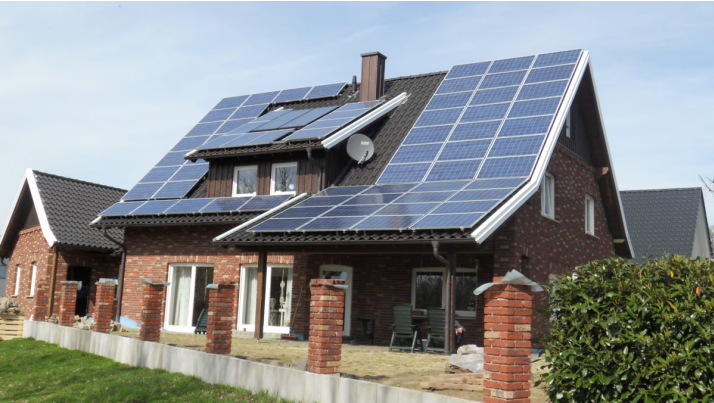How Solar Works?
Solar power works by harnessing the sun’s energy and converting it into usable electricity.
Here is a detailed description of the process:
Solar Panel: A solar panel consists of photovoltaic (PV) cells, usually made of silicon. These cells absorb sunlight and convert it into direct current electricity. Inverter: The DC power generated by the solar panels is then sent to an inverter. Inverters convert direct current to alternating current (AC), the type of electricity used in homes and businesses.
Electrical panel: AC power from the inverter is sent to the electrical panel where it can be used to power appliances and equipment in the building, or it can be sent back to the grid if not needed immediately.
Net metering: Net metering comes into play in scenarios where there is excess power generation. Net metering allows any excess electricity to be sent back to the grid, and owners of solar panels are rewarded for the electricity they contribute. When the solar panels don’t produce enough power, the credit can be used to offset the power they draw from the grid. It is important to note that solar power only generates electricity during the day when there is sunlight. Energy storage systems, such as batteries, can be used to store excess electricity generated during the day for use at night or when sunlight is low.
Overall, solar energy is a renewable and environmentally friendly energy source that is gaining popularity for residential, commercial, and utility-scale applications.
The advantages of solar energy

In addition to being a clean, renewable energy source, solar energy has several advantages:
Reduce your electricity bills: By generating your own electricity, solar energy can significantly reduce your monthly electricity bills. The amount of savings depends on the size of the solar installation and the electricity consumption of the building.
Eco-Friendly: Solar power produces zero greenhouse gas emissions during operation, helping to reduce carbon footprint and mitigate climate change. It also helps reduce reliance on fossil fuels like coal and natural gas, which negatively impact the environment.
Energy Independence: Solar energy allows individuals and businesses to generate their own electricity, reducing dependence on the grid. This can provide a sense of energy independence and resilience, especially in areas prone to blackouts or rural areas where grid access may be limited.
Long-term cost savings: While the initial cost of installing solar panels can be high, solar power systems typically have a long lifespan and require minimal maintenance. This means that over the lifetime of the system, the cost of solar power can be significantly reduced compared to electricity from traditional sources.
Government Incentives: Many governments offer financial incentives and tax credits to encourage solar adoption and make installing solar panels more affordable for homeowners and businesses. Job Creation: The solar industry has been growing steadily, creating a large number of jobs in the fields of installation, manufacturing, and maintenance. Not only is this good for the economy, it also provides jobs. As technology advances and the cost of solar panels continues to decrease, solar power is becoming an increasingly accessible and viable option for individuals, businesses, and communities looking to reduce their carbon footprint and take advantage of the many benefits it brings.
Post time: Jul-13-2023